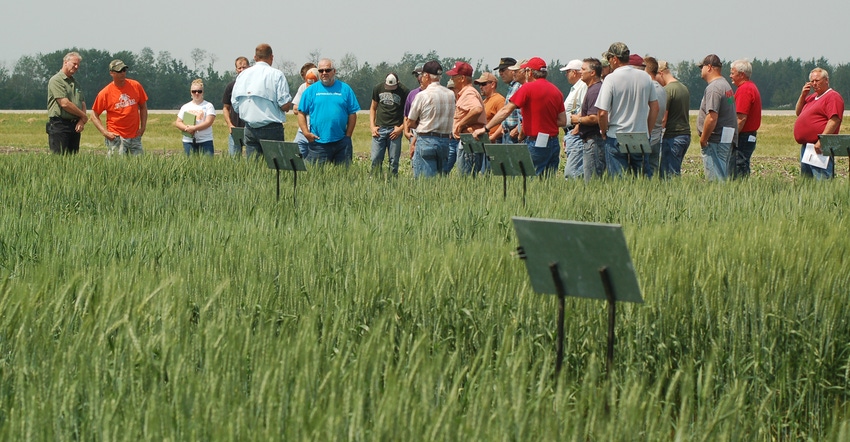December 16, 2022

The 2022 Minnesota field crop trials are now available online from the University of Minnesota’s Agricultural Experiment Station and the College of Food, Agricultural and Natural Resource Sciences.
U-MN field crop trials offer unbiased information with data compiled from the annual trials.
The program is financed in part by entry fees from private seed companies that choose to enter hybrids and varieties for testing. The corn grain variety program, for example, involved three test zones — southern, central and northern — with evaluated maturities ranging from late (103 RM) to early (97 RM). With soybeans, MAES scientists conduct performance tests on public and private varieties and also charge companies with entry fees. One stipulation of the testing program is that the company is marketing or intends to begin marketing the entry in the next growing season.
Due to a delay in processing data, a full report for winter wheat will be available in mid-December.
Since the late 1880s, MAES has published reports of crop variety trials. However, it wasn’t until 1948 that the trials were combined into a single annual publication. Today, the annual field crop trials are designed in-house and published online, and they feature crops grown at multiple research and outreach centers and in cooperating farmers’ fields across the state.
Crops included in this year’s trial include barley, canola, corn grain, corn silage, oat, soybean, spring wheat, winter rye and winter wheat.
To review the trials, visit varietytrials.umn.edu/2022.
Source: MAES
You May Also Like




